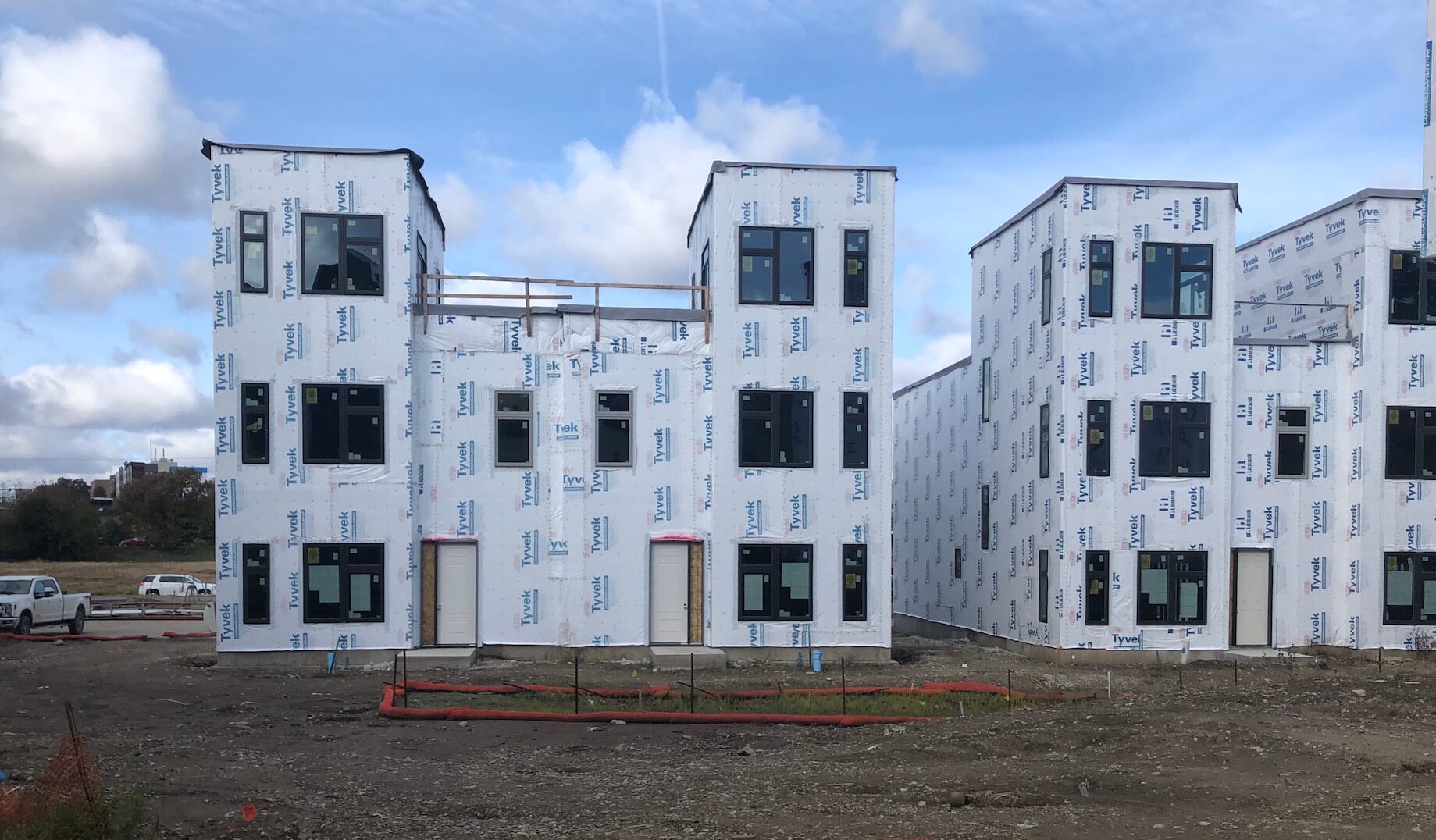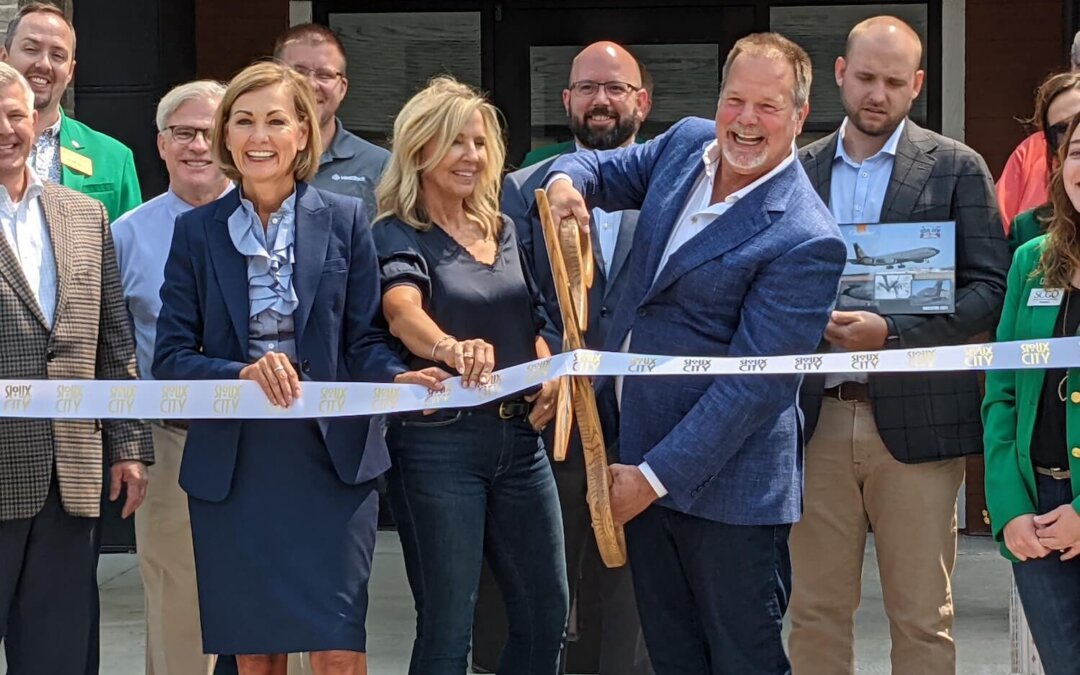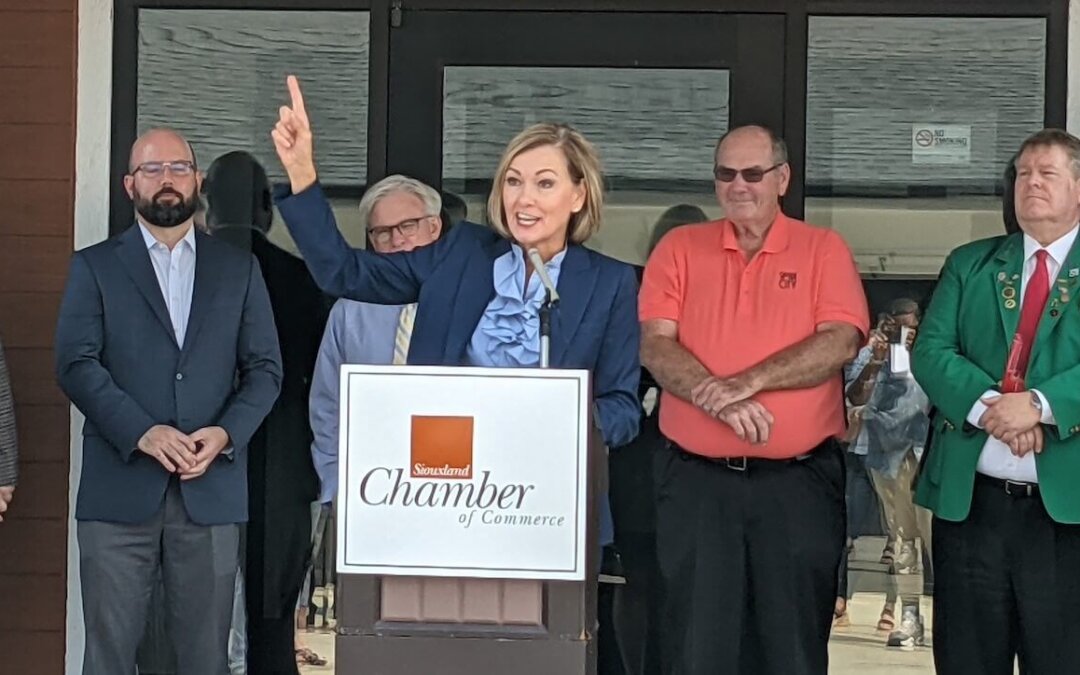
Several mayoral candidates with extensive, but different backgrounds dealing with Des Moines’ rising shortage of affordable housing have proposed varied approaches to solve the issue ahead of Nov. 5 elections.
Incumbent Mayor Frank Cownie, who has led the city through rapid downtown development during his 16-year tenure, is up against local affordable housing developer Jack Hatch, former homeless veteran Chase Holm and former congressional candidate Joe Grandanette. The mayoral race comes amid the city’s need for housing reform in order to keep up with a growing workforce, rising home prices and a shortage of affordable options.
“We are challenged, because we know that these net new units that we need, simply, under today’s conditions and circumstances, the markets alone can’t keep up,” said Polk County Housing Trust Fund executive director Eric Burmeister, at a recent workforce housing forum for current and prospective elected officials.
Polk County will need to add 57,170 net new housing units before 2038 to accommodate new workers, according to Housing Trust Fund data, with more than more than 50% of that demand for homes priced below $175,000.
Burmeister said the way the housing market currently is, it is impossible to find a new unit for $175,000 — the best alternative goes for about $225,000. This means mayoral candidates, along with other elected officials, need to accommodate the growing concerns.
“What that means is that you guys, as elected officials are going to have to look outside of the box a bit. If this is what’s coming at us, how are we going to think outside of the box to accommodate it?” Burmeister said.
[inline-ad id=”1″]
Frank Cownie
Cownie, the longest-serving mayor in the city’s history, said he’s proud of the housing progress he’s made in 16 years, and is actively looking for solutions to why people feel “neglected and rejected” on the housing front.
He’s looking at wages and transportation reform and increasing public-private partnerships to “think outside of the box.”
“I’m going to keep fighting for higher wages so affordability becomes a slightly different problem as incomes go up,” Cownie said.
During his time as mayor, the population of downtown Des Moines has swelled from nearly 2,000 to about 17,000 people living in the city center within 15 years. Cownie said this was because of the city’s commitment to fix streets and public infrastructure. Incentives to build downtown have also ramped up during Cownie’s tenure.
“Downtown has been really sort of interesting, because we just started making a deal with property owners where we said, ‘If we fix Locust Street, will you as property owners rethink what the East Village looks like?’” Cownie said. “‘If we do the street, will you all agree to do that work?’”
[inline-ad id=”2″]
But Cownie said he is now looking to require future developments to have a number of affordable housing units.
“Don’t talk to me just about high-end. If you want x, y and z, if you want any city assistance in infrastructure or anything else, then you have to commit to a certain number of affordable units,” he said.
Cownie and the Des Moines City Council have recently been subject to controversy as a newly approved city zoning code was met with pushback from affordable housing advocates. The new code, which includes minimum square footage requirements and other design standards, will add additional costs to housing, critics say.
But Cownie said the new code encourages better quality and more variation in the city’s homes.
“We want to see long-term value, not just short-term affordability. We somehow need a balance between those two and that’s what we’re trying to do,” he said. “We’re working together with residents, hand-in-hand to create equity over their lifetime.”
[inline-ad id=”2″]
Jack Hatch
Hatch, a former state senator and 2014 Democratic gubernatorial candidate, heads Hatch Development Group, a company focused on building mixed-income, affordable housing units. The candidate said he has built $168 million worth of affordable housing over his career.
If elected, Hatch said he would no longer develop properties in the city of Des Moines.
“I’m taking that off the table, so there is no potential conflict of interest, so I could use my experience without people thinking that I am ‘pulling a Trump,’” Hatch said.
Hatch intends to focus on development in the city’s neighborhoods while veering from his interests as a developer to challenge the industry’s “status quo.”
“I’m going to turn this around, and let them know that the neighborhoods are where you’re going to have to look for huge growth,” Hatch said.
In his housing plan, Hatch proposed the creation of a program requiring every commercial and industrial development receiving TIF [tax-increment financing] funds or tax abatements to contribute 10% of their incentive package to two new funds, which will push building out to the neighborhoods.
These funds are the Single-Family Housing Fund — meant to build new single-family housing on vacant lots and identify in-fill housing opportunities, and the Housing Renovation Fund — which identifies abandoned or troubled housing for rehabilitation.
[inline-ad id=”3″]
Developers won’t like this proposal, Hatch said, “But if they’re going to get city incentives, then that’s going to be the new rule. Then don’t ask us for tax abatement. Don’t ask us for tax-increment financing.”
Currently, Hatch said he doesn’t have any support from developers.
“I haven’t really asked,” Hatch said. “Because when you go up against an incumbent, with who [developers] have done very well, why would they endorse me? I mean, look at downtown. Including myself, we’ve done well. Why would we go out to the neighborhoods?”
Hatch’s affordable housing plan also includes freezing property taxes for all residents over 65 and protecting historic homes.
“I’m going against the status quo interest of developers and really elevating the new financing that a modern city has to create,” he said. “I’m also recognizing that when we give these incentives, it’s got to be not only for the area in which the new building is being built, but the rewards have to be felt by everybody.”
Chase Holm
A former homeless veteran, Holm is now an internment/resettlement specialist who has pledged to lower property taxes in Des Moines if elected.
Holm hopes to increase the city’s affordable housing supply by developing accessory dwelling units on homes.
“These dwellings can include turning basements into independent living quarters, adding tiny houses in the backyard, or an apartment over the garage,” Holm said. “By doing this, we assist the current owners with their house payment and provide a dwelling for low income citizens.”
The candidate also proposes the city assist with down-payments for ownership of a home for anyone that’s rented in Des Moines more than 10 years.
“After owning your home for 30 years, there will be a massive reduction in property taxes as a thank you for being a long-term member of our city and for investing in our community’s prosperity,” he said. “This policy adds additional long-term residents, allowing for a stable tax base and a stronger sense of community.”
Joe Grandanette
Grandanette is no stranger to running for public office. In 2018 he ran as an Independent in Iowa’s 3rd Congressional District, currently represented by Democratic Congresswoman Cindy Axne.
The candidate hopes to use federal, state, county and city funds to develop “hundreds of vacant lots in our city of Des Moines.”
“As mayor. I will lead the charge in getting all of these vacant lots built so we can have a place that people can call home at an affordable price,” Grandanette said.
By Isabella Murray
Posted 10/24/19
Politics

Biden marks Earth Day by announcing $7 billion in solar grants
The Biden administration on Monday announced the recipients of its Solar For All Program, a $7 billion climate program that aims to lower energy...

6 terrifying things that could happen if the Comstock Act is used to target abortion
Does 1873 sound like a really, really long time ago? Well, that’s because it is—but if Republicans and far-right anti-abortion activists have their...
Local News

No more Kum & Go? New owner Maverik of Utah retiring famous brand
Will Kum & Go have come and gone by next year? One new report claims that's the plan by the store's new owners. The Iowa-based convenience store...

Here’s a recap of the biggest headlines Iowa celebs made In 2023
For these famous Iowans, 2023 was a year of controversy, career highlights, and full-circle moments. Here’s how 2023 went for the following Iowans:...




